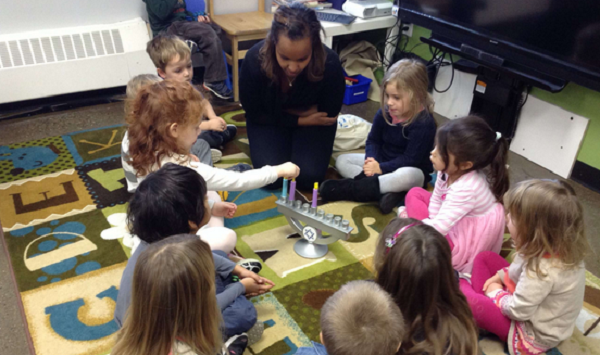Child-care costs remain high in Toronto compared to other places in Canada, study finds
Most provinces have made “solid progress” in reducing fees as the country moves to $10-a-day child care, but costs remain stubbornly high in cities such as Toronto, Vaughan and Oakville, says a new report from the Canadian Centre for Policy Alternatives.
“If you look at what is needed to put child care in place, a majorly important part is affordability,” said study co-author Martha Friendly. “Another important part is we need the services expansion — and in order to make that happen, we need the workforce.”
The survey on fees across the country, which has been conducted since 2014, found the move to $10-a-day daycare has so far been a “big success in the sense that the federal government said to the provinces ‘you have to reduce fees in one year by half’ and by and large, they mostly did,” said Friendly, of the Childcare Resource and Research Unit, who conducted the survey with the centre’s senior economist David Macdonald.
“That being said,” she added, “that was the first year, and now we have to turn to the other pieces.”
The Canada-wide Early Learning and Child Care agreement included a provision that provinces and territories reduce fees paid by families by 50 per cent by last December, as part of the goal to reach the daily $10 by 2025-26.
“Of the 32 cities in jurisdictions agreeing to the federal target … more than half achieved the target,” says the report, to be released Thursday. “Between one-fifth and one-quarter of the 32 cities, depending on the age group, reduced child-care fees between 40 to 47 per cent — close to target. The remaining 13 per cent to 25 per cent of the cities,” however, “missed the federal reduction target by a bigger margin.”
In Ontario, fees were reduced by 52.75 per cent, and “overall, most Ontario cities achieved the federal 50 per cent fee reduction target in most age groups. Hamilton didn’t quite reach the federal targets due to previous fee reductions and there were near-misses of the 50 per cent target in some of the wealthier Toronto suburbs — Oakville, Vaughan and Markham … Nevertheless, median fees in Ontario are much lower than they were in 2020.”
Alberta, B.C. and P.E.I. also didn’t meet the half-fee target, the report notes.
The report calls on provinces to create “set fees” because they are “more transparent, and more equitable,” said Friendly, noting some already do.
Infant care costs the most in Richmond, B.C. and Toronto, where the median cost for full-time care is $900 a month. Toddler care in Toronto, at $725 a month, is the third highest in the country behind Richmond and Calgary.
For preschoolers, Calgary takes the top spot at $810, followed by Richmond at $800. Oakville, Vaughan, Toronto, and Burnaby and Surrey in B.C. were next with fees of $600 a month.
Child-care costs are the lowest — already at $10 — in Quebec, St. John’s, Winnipeg, Saskatoon, Regina, and Iqaluit, the report notes.
Friendly said that in the past, Ontario fees had been highest because of lower contributions from provincial governments for operating costs.
Under the new program, Ontario families are currently saving about $10,000 a year per child.
While the report doesn’t address it, she said the staff shortage is a big issue “and it’s going to take money” to solve it.
“The money that the federal government has invested thus far almost all went to reducing parent fees, which was very important,” Friendly said.
“But now the question is the money to actually increase wages and compensation and then begin to deal with the other staffing issues, that still needs to be done for this to be successful.”
Education Minister Stephen Lecce recently said that a wage increase for early childhood educators above what’s been promised is on the way, though he would not provide details.
Early childhood educator pay was set at a minimum of $18 an hour in 2022 as part of deal with Ottawa for the national program, and is set to rise $1 a year.
It is currently $19 an hour, which is among the lowest in the country, the Association of Early Childhood Educators Ontario and the Ontario Coalition for Better Child Care recently said.
Overall, about one-third of ECEs earn less than $20 an hour. Almost half — 46 per cent — earn between $20 and $25 an hour, and 16 per cent earn between $25 and $30 an hour, the groups said.
“We do appreciate there is a great deal of pressure on the workforce, there is a great deal of staff leaving the workforce within five years,” Lecce has said.
“We recognize the challenge … and commit to bring forth a plan that will go even above the federal (government) contribution.”
The province will also look at how to best recruit workers into the profession and also retain them, Lecce has said.
“In order to create the spaces, we need the workers,” the minister said.
This article was reported by The Star
















